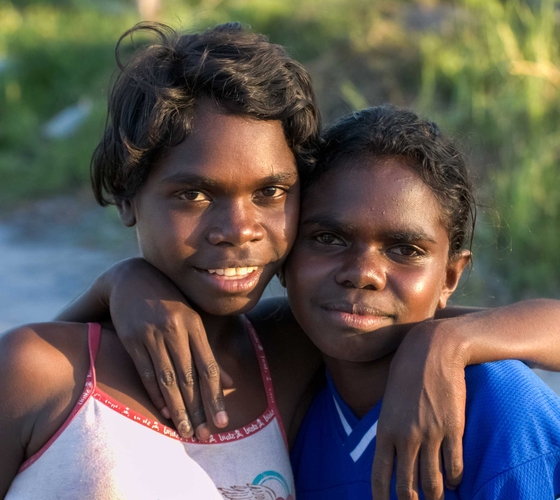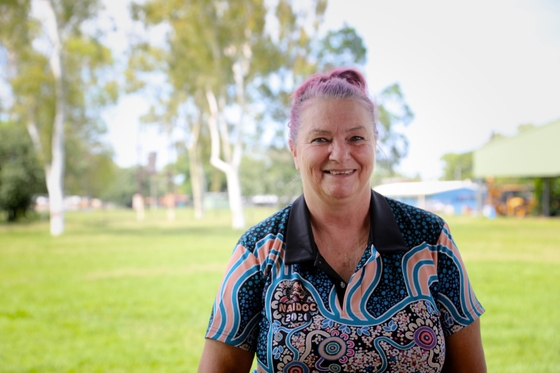
Q&A with Dr Jessica O’Brien
Dr Jessica O’Brien is a cardiologist and PhD student at Monash University and Alfred Health.
Dr O’Brien received an Aboriginal and Torres Strait Islander Award from the Heart Foundation for her project 'Quantifying myocardial inflammation in acute rheumatic fever and rheumatic heart disease'. This grant is focused on capacity building and increasing Indigenous representation at all levels of research.
Dr O’Brien will use cardiac magnetic resonance imaging (MRI) to identify myocardial inflammation (inflammation of the heart muscle) in acute rheumatic fever. The aim is to improve diagnostic accuracy and the ability to predict who is most likely to progress to rheumatic heart disease.
Acute rheumatic fever is an illness that is caused by an autoimmune response to a type of bacteria called group A streptococcus (‘Strep A’). These bacteria can cause skin and throat infections. For some people with a Strep A infection, the body’s immune system can start to attack itself, leading to inflammation throughout the body. This is known as acute rheumatic fever. If acute rheumatic fever involves inflammation of the heart, this can affect how well the heart valves work, and can lead to a condition called rheumatic heart disease. Rheumatic heart disease is currently a leading cause of heart failure and death in Aboriginal and Torres Strait Islander communities.
By being able to diagnose acute rheumatic fever early, this will help to improve access to effective medications (antibiotics) to prevent infection. The overall goal is to help reduce the impact of rheumatic heart disease in Australia.
Dr O’Brien says, “Because of my background, I have always been interested in Indigenous health, but it wasn't until I started medical specialist training that I saw the extent of the gap in health outcomes between Indigenous and non-Indigenous Australians. One of the many contributors to this issue is that there are not enough Aboriginal and Torres Strait Islander health professionals and researchers, which is important to ensure Indigenous people can receive culturally appropriate, best practice care.”
What are you currently researching?
Our project aims to overcome some of the existing challenges in diagnosing and treating acute rheumatic fever. Using cardiac MRI, we can identify inflammation of the heart, which may not be obvious with other tests. This will help doctors diagnose and treat acute rhematic fever before it progresses to rheumatic heart disease.
What difference will your research make to people’s cardiovascular health in Australia?
In Australia, acute rheumatic fever mainly affects Aboriginal and Torres Strait Islander communities. Over time, acute rheumatic fever can progress to rheumatic heart disease, a leading cause of heart failure and death in this population. Mortality rates from rheumatic heart disease are far higher in Aboriginal and Torres Strait Islander people than they are in the non-Indigenous population. We hope that our research will help to address this gap by providing more effective ways to diagnose acute rheumatic fever and rheumatic heart disease.
What motivated you to do your research?
There is inequality in the heart health of Indigenous and non-Indigenous people, with this gap being most obvious in acute rheumatic fever and rheumatic heart disease. Acute rheumatic fever has been almost eradicated among the non-Indigenous population but continues to be a leading cause of heart failure and death in Aboriginal and Torres Strait Islander communities. This project will hopefully help to reduce that gap. By working with other people and organisations in this space, addressing these issues can create meaningful change.
What role has Heart Foundation funding had in your career journey?
Heart Foundation funding has completely transformed this project. The funding has allowed us to include more Aboriginal and Torres Strait Islander people in our team, which is important to ensure our research is culturally relevant and appropriate. We have also been able to translate our research documents into First Nations languages, to show participants and family members that their language and cultural backgrounds are acknowledged and valued by this project.
Do you have a message for Heart Foundation supporters?
Thank you for your generous support of the Heart Foundation. Without your support, projects like this would not be possible.

You are helping us overcome inequalities in heart health between Indigenous and non-Indigenous communities. In this way you are supporting us to create real, meaningful change for thousands of Australians.
Dr Jessica O’Brien
Cardiologist and PhD student
You might also be interested in...

Guidelines for acute rheumatic fever and rheumatic heart disease
Australian guidelines for prevention, diagnosis and management of acute rheumatic fever and rheumatic heart disease.

Acute rheumatic fever (ARF) and rheumatic heart disease (RHD)
Rheumatic heart disease is a serious disease that causes damage to your heart valves.

Q&A with Mrs Vicki Wade
Beyond the Scars: The social and emotional wellbeing of young Aboriginal and/or Torres Strait Islander Peoples with rheumatic heart disease
Last updated09 January 2026
Last reviewed13 December 2023